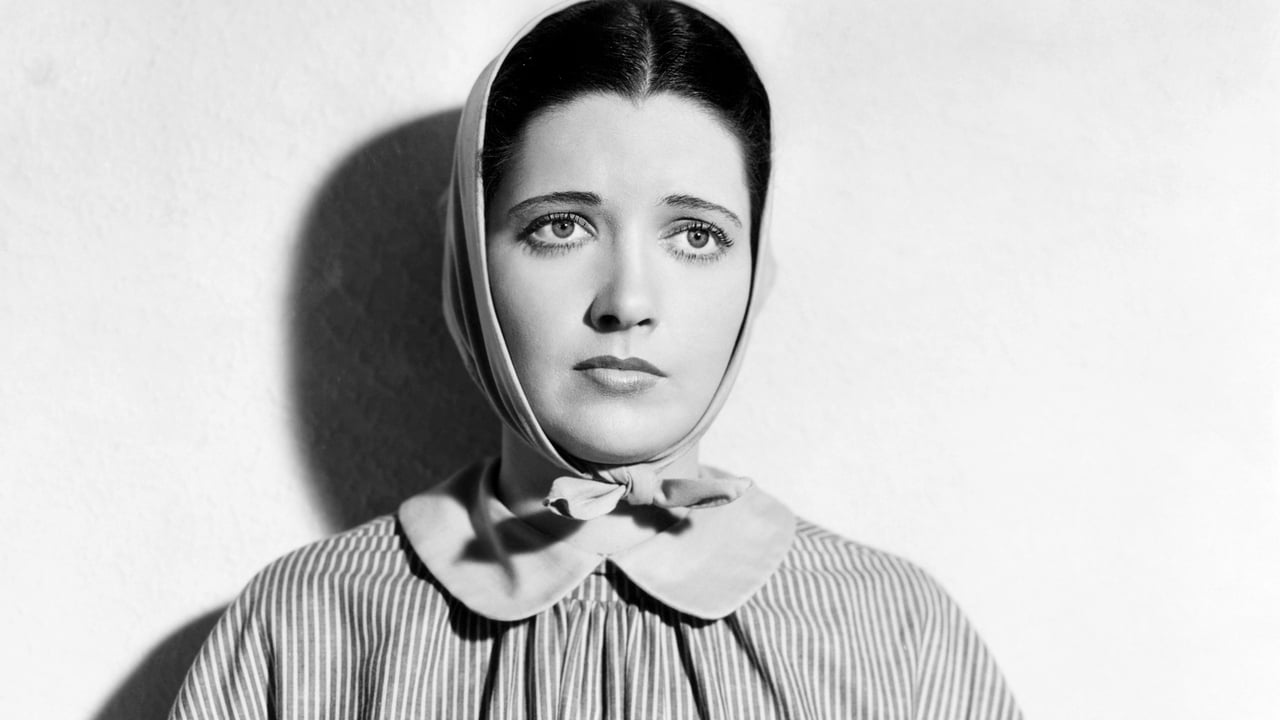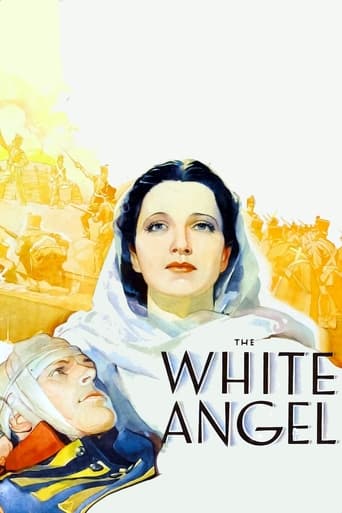

Sadly Over-hyped
... View MoreDreadfully Boring
... View MoreFanciful, disturbing, and wildly original, it announces the arrival of a fresh, bold voice in American cinema.
... View MoreLet me be very fair here, this is not the best movie in my opinion. But, this movie is fun, it has purpose and is very enjoyable to watch.
... View MoreThe good news -- it's a relatively interesting film where you can learn a little superficial history about Florence Nightingale and the time period in which she lived.The bad news -- this is an unimpressive performance by Kay FCrancis.In regard to Kay Francis, she is one of those actresses who were very famous in the early days of the American sound cinema. She turned in fine performances in many films. However, bu 1936 she was on the verge of being identified as "box office poison". During the time frame that this film was being made, she was complaining to Warner Brothers about the scripts being given to her. In this case, however, I feel that Francis' performance here is shallow and stereotypical...at some points almost verging on being corny.In other regards, however, it's quite a good film. It has rather high production values. And, while they take liberties with history, the film still gives one a fair understanding of the general situation of women in medicine of that era.The supporting cast fares better than Ms. Francis. Ian Hunter plays a journalist, and while not a big part, he does nicely. Nigel Bruce doesn't play the fool here...just an incompetent. Donald Crisp plays a military official who bitterly opposes Nightingale's efforts. Henry O'Neill also does well playing a doctor who enthusiastically supports Nightingale.This is an okay film if you like old-fashioned biopics.
... View MoreKay Francis stars in this biopic of Florence Nightingale. I love old Hollywood biopics. They get a lot of flack today by certain types for embellishing some facts of these people's lives. Seems to me biopics today have even worse flaws. Instead of embellishing positively they embellish negatively. In other words, instead of focusing on inspiring uplifting strengths and virtues they focus on the faults and vices of historical figures. To each their own but personally I will take the rousing biographical films from back then over the salacious and often slanderous ones of the modern era.Rant aside, this is not the strongest biopic but it is a decent one. Kay Francis works against type quite well. She's helped by an amazing supporting cast. To name a few: Donald Crisp, Nigel Bruce, Donald Woods, Henry O'Neill, Ian Hunter, Halliwell Hobbes -- they all give first rate support.Overall it's an entertaining film. I recommend it to people who are interested In the story of Florence Nightingale and anybody who enjoys Golden Age of Hollywood biographical dramas.
... View MoreIt's a sort of cartoon version of a famous figure. Florence Nightingale -- a real and self-sacrificing individual who brought fresh ideas and fresh sheets to the suffering wounded of the Crimean War around 1855 -- is turned into one of those saints who rejects marriage and family in order to follow her calling as a nurse. Along the way she battles the medical community, mostly in the person of Donald Crisp, who feels that a wounded soldier SHOULD suffer -- makes a man of him, you know.This was all before Lister, Pasteur, the germ theory of disease and all that nonsense. What she accomplished, aside from the warmth shown towards the wounded and ill, was done by simple methods of public health. She swept the floors, got rid of the rats, provided clear drinking water, washed the sheets, used new bandages and so forth. It's a point in the movie's favor that the sick aren't neglected. As in the American Civil War, more soldiers died from infectious diseases like cholera than from battle wounds. Not much earlier the docs were still prescribing arsenic and using leeches to bleed the sick. When a wound or amputated limb became infected, the "laudable pus" was seen as a sign of normal healing.Where was I? Yes, the movie. Alas, considering how important and celebrated a figure she was, this story of "the lady with the lamp" is written as if it were a Classics Comic Book. The dialog is stilted. "Thank you so much. I'm sure I shan't regret it." Donald Crisp as the main antagonist, the moron who feels that adversity brings out the best in people, is properly ligneous. But Kay Francis, quite attractive in her own conventional way, torpedoes the movie with her inexpressive performance. She smiles once in a while but when she does she exudes the warmth of an ice cooler.At that, she's nicer than some nurses I've had to deal with. The last one, a real battle axe, about to perform a colonoscopy on me, shouted "RELAX!" as she violated my body sheath. As long as I'm editorializing, the Crimean War was really stupid -- even more stupid than most. The Ottoman Empire, centered on Turkey, was weakened and on the verge of collapse. Translation: neither Russia nor the European powers were about to let all that territory go unoccupied. Oh, a beautiful job of mismanagement. Ever read Tennyson's "Charge of the Light Brigade"? Anyone interested in the conditions under which Florence Nightingale worked can find a gripping documentary of the Crimean War on YouTube.
... View MoreWarner Brothers in the 1930's was known a lot more than their Busby Berkley musicals and gangster dramas. They filmed a successful series of biographies, from George Arliss' "Disraeli", "Voltaire", and "Alexander Hamilton", to Dolores Del Rio's "Madame DuBarry". When Paul Muni had a hit with his performance as Louis Pasteur, Warner Brothers decided to give their biggest leading lady, Kay Francis, the chance for hers as "the lady with the lamp", Florence Nightingale.This was a departure for Kay, who had appeared in a series of romantic dramas which for the most part had not done all that well at the box-office. The rising success of another Warner Brothers contract actress Bette Davis had Francis desperate to do something other than suffer in mink. Unfortunately for Kay, the film was released in July when the majority of the audience-teenagers-wanted action and adventure, not a history lesson. Then, there were the reviews, which were respectable-for the film's overall production, but not for Kay. They all mostly agreed that Kay was badly miscast as the noble Florence. The film begins with wealthy young Florence fixing the broken leg of a dog, then deciding, much against the wishes of her family, to enter nursing. She is appalled by nursing conditions, and does all she can to change them. Cleaning out the drunk and cruel harpies which seem to represent 75% of the nursing profession, Florence finds an ally in a kind-hearted nun (Eily Malyon) who becomes her assistant. War erupts, and Florence works at the front harder than any of the women she hires. Of course, this takes a toll on her health, as does the presence of doctor Donald Crisp who objects to her methods.I agree with the critic's conception of Kay's miscasting as Florence. While I don't know what she looked like in real life, something tells me that the nursing uniforms worn by Kay were not nearly as glamorous looking. Only in a Kay Francis movie can the heroine walk through a dirty hall of sick soldiers looking as if she's heading out to a nightclub. Kay's makeup never falters, even in her sickly state. It's not that Kay's performance is bad; something tells me that she was never able to sink her teeth into this role as Bette Davis or Barbara Stanwyck would have done. Sadly, the failure of this film seemed to doom Kay's remaining days at Warner Brothers to long-suffering mothers or romantic heroines. Seen today on Turner Classic Movies, "The White Angel" can easily impress its audience with its overly noble portrayal of a saintly woman who changed the nursing profession single handidly. When compared to the Paul Muni and George Arliss bios, where it lacks is in the lack of a presence of a strong leading lady. Kay Francis still remains one of my favorites, and as a movie, this is enjoyable, but she's still Kay Francis, regardless of the lack of sables and minks. The story of Florence Nightingale had several other attempts on screen: in a 1950's English film with Anna Neagle; and on TV in the 80's with Jacqueline Smith. Just the mentioning of the last one makes me ask the question: didn't the people who made that version read the reviews of this one?
... View More